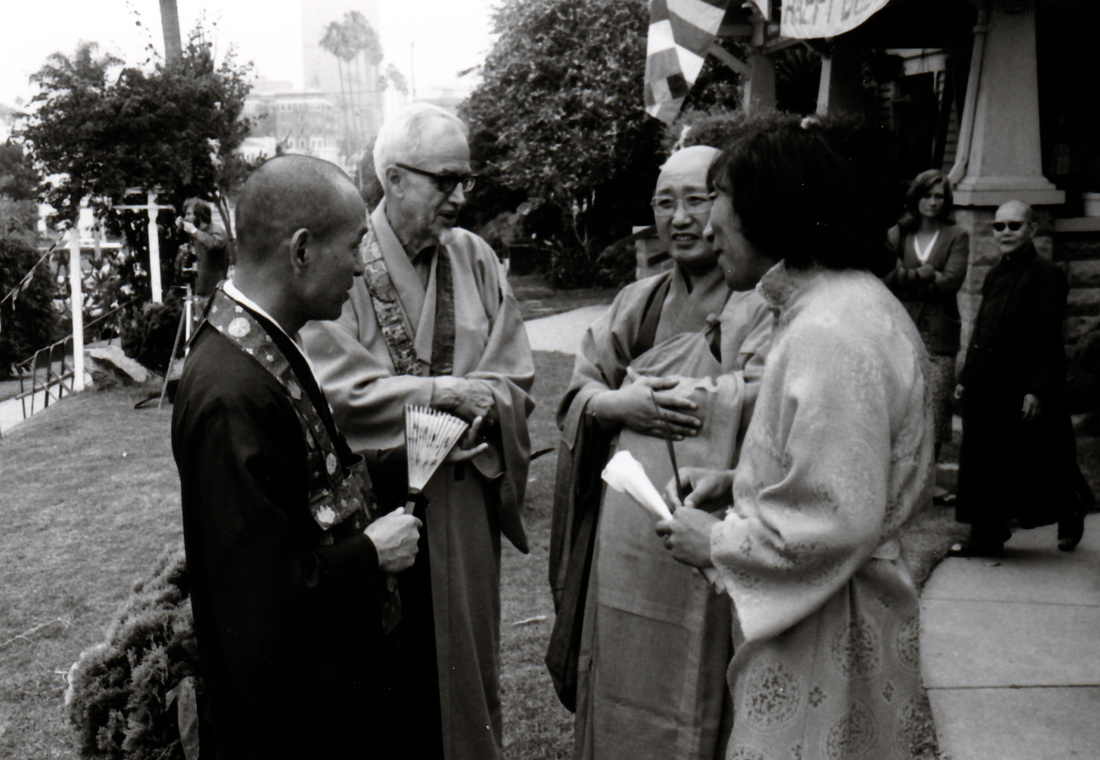BDU GUIDELINES
Buddha Dharma University Guidelines – as adapted by our Grand–teacher Zen Master Seung Sahn, from the original by Soen Master Bojo Jinul (revised by Zen Master Wonji)
You must first make a firm decision to attain Enlightenment and to be of assistance to others. Whether you are a beginner or have already taken Buddhist precepts, over time you will intuitively know when to observe your vows and precepts and when to deviate from them, by realizing when they are applicable and when they are to be interpreted for a given situation. However, until you attain this through and through, and you and your teacher both agree on this point, you should follow your vows and precepts as well as these guidelines very carefully and meticulously. You must let go of your small self to discover your true self.
in original nature
there is no this and that.
the great round mirror
has no likes or dislikes.
if in this lifetime
you do not open your mind,
you cannot digest
even one drop of water.
Always act in harmony with others and do not put yourself above or below your sangha members by acting differently. Arrogance is not tolerated within the Sangha. In addition, money and sex are like a spiteful snake; so put your concern with them far away. During meditation always walk behind those practicing and while attending talks and ceremonies, be mindful of your proper posture and dress. Do not speak loudly or laugh inappropriately in the sacred places. When you have business, which may cause you to miss important ceremonies or practice, be mindful and notify one of the Sangha officials before you leave on your trip.
Respect those older than yourself, while loving those that are younger; and keep a mind that is always spacious and open to this very moment. If you should encounter people who are sick, you should always try to love and help them. You must always be hospitable to guests and make them feel welcomed while attending to their needs. When respected visitors are present, bow to them and speak considerately with them; additionally, practice considerate behavior by allowing others to always go before you. Help everyone you might meet and do not play games with them. Do not gossip among the Sangha members or use their shoes or coats that they may have left at the Zen Center. When reading spiritual books do not attach to the words or try to come up with your own system of enlightenment. If you have questions about what you may have read, put it to your Teacher and they will help clarify the teachings for you. In your private life, do not oversleep or indulge in frivolous actions. When attending public events always let the older and more respected people be seated before you, and do not discuss petty Sangha matters with guests. If you have occasion to visit other organizations outside the Zen Center, always speak well of the Sangha to others. Taking intoxicants to produce heedlessness, or acting out of lust will only create negative karma and destroy your practice; therefore, you must aspire to be strong and to think and act correctly. If you can accomplish these things then any desires will not tempt you.
Do not delude yourself into thinking that you are a great and free person for this is not true Buddhism. Attend only to yourself and do not judge or arbitrarily comment on the actions of others. Do not make the bad karma of killing, stealing, or of lust.
originally there is nothing.
but Buddha practiced unmoving under the
Bodhi tree for six years.
and for nine years Bodhidharma sat silently in Shàolín.
if you can break the wall of yourself,
you will become infinite in time and space.
once a there was a man who spoke incorrectly
and was reborn a fox for five hundred generations.
eventually he encountered the correct speech,
and he shed his fox’s body.
what is correct and incorrect speech?
if you open your mouth, I will hit you thirty times.
if you close your mouth, I will still hit you thirty times.
you must grab the word–head (huàtóu) and not let go.
the dog is barking. woof, woof, woof!
the cat is meowing. meow, meow, meow.
First work, and then eat. When you eat, eat in silence and try not to make unnecessary noise. While eating, attend only to yourself and do not be concerned with the actions of others. Accept what is served with gratitude. Do not cling to your likes and dislikes. Do not seek satisfaction in eating. Eat only to support yourself in your practice. Though you may eat good food all your life, your body will die.
the Great Way is not difficult.
simply cut off all thought of good and bad.
salt is salty.
sugar is sweet.
Understand that you have accumulated negative karma that is like a big mountain, so keep this in mind as you bow in repentance. Our karma has no self–nature, but is created by our mind. If our mind is extinguished, our karma will also be extinguished, when we see both as transparent, this is true repentance. We bow to see our own true nature and then to help others.
shouting into a valley.
big shout: big echo.
small shout: small echo.
in the great work of life and death,
time will not wait for you.
if you die tomorrow, what kind of body will you get?
is not all of this of great importance?
hurry up! hurry!
blue sky and green sea
are the Buddha’s original face.
the sound of the waterfall and the bird’s song
are the great sutras.
where are you going?
watch your step!
water flows down to the sea.
clouds float up to the heavens.


